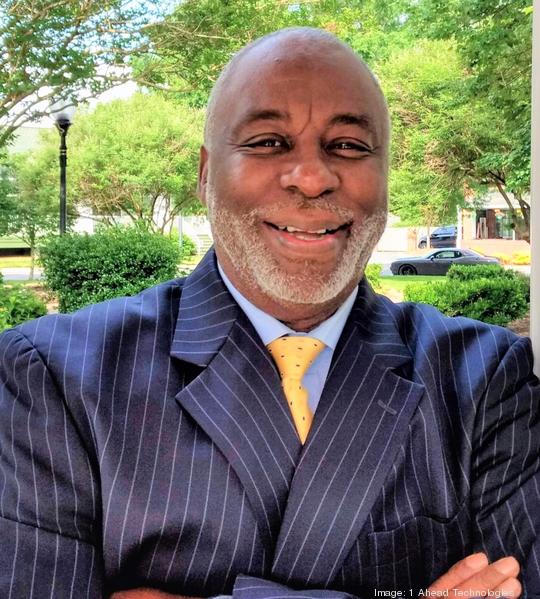
Home technology entrepreneur Ron Carter is working to bring the next generation of the video doorbell to market, supported by a patented digital key, artificial intelligence and robotics to serve the e-commerce and home-security industries.
Carter is CEO of 1 Ahead Technologies, which showcased a system called GLO at the Consumer Electronics Show in Las Vegas in January. GLO is a combination of technologies that support secure entry point access and home security. The technology employs a patented digital key to create a one-time code that can be sent to e-commerce delivery drivers to place packages inside or give access to a plumber arriving to do repairs while the homeowner is away. The GLO platform also uses drones and other robots to confront and collect information about security threats to the home and reports those to law enforcement.
“This technology is far superior to anything in the marketplace,” Carter says. “We believe it’s going to retire all of the doorbell devices. Most of the companies with the ability to acquire it have wanted to see a finished product. Our goal was to be the first to market with this, and I am hoping we can still accomplish that.”
Carter has spent two decades in the home technology space, with some significant highs and lows in the business. Notably, in 2017 Carter was pushed out as president and CEO of Revolutionary Concepts, a company he founded in 2004 after devising a video doorbell using a Blackberry and Panasonic camera, an idea for which he was granted a patent in 2007.
As the company grew with 19 patents, Carter was advised to take his company public, and he was paired with someone skilled in the effort.
Carter worked for a time with Solomon RC Ali, who was indicted in 2018 by the Securities and Exchange Commission for alleged violations of federal securities laws. In April 2020, a Georgia federal court ruled Ali recklessly made false public filings and press releases to cover up sham transactions. In January 2021, the court entered a final judgment imposing a 10-year officer and director bar and a 10-year penny stock bar. He was also ordered to pay a civil penalty.
Carter says Ali wrested control of Revolutionary Concepts from him, and he didn’t have the resources to put up a fight.
In 2017, after losing control of the company, Carter took a job delivering packages for UPS. In that job, he witnessed the growing problem of porch pirates stealing e-commerce packages.
“We would call the police if we saw a car following a UPS truck and looking suspicious,” Carter says. “These guys would trail us and look for large packages. If we parked down the street, we’d see these guys jump out and grab the package.”
Carter saw an opportunity to create a technology to provide support to the e-commerce sector by adding AI, robotics and a digital key to his earlier patents. Just months after losing Revolutionary Concepts and going to work for UPS, Carter had his next big idea.
In November 2017, Carter filed his patent. In January 2019 — just 13 months later — Carter had the patent for his GLO technology.
“Patents in the tech space take years. You are lucky if you get an award in three years,” Carter says. “It was confirmation to me. I was so overwhelmed because it was for AI at an entry point, which I felt was worth billions, but no one could get their head around it.”
Beyond the home package delivery and security markets, Carter sees application for his technology to deter crime at entry point locations such preventing intruders who commit school shootings.
Carter explored selling the patent and is now developing the product.
As part of the GLO technology, Carter’s team created a virtual key using a reader device that has the ability to read images. The image can be sent via text to another person who can display that image and receive access. Carter says the work with an engineer to create a virtual key took about a year to perfect.
As Carter moves forward with production, he’s seeking a buyer for his technology. He points to the $1.6 billion that Amazon paid for the Ring doorbell technology as a comp for his intellectual property.
Carter is working to secure a North Carolina manufacturer, which plans to have the product to market in about eight months.
Laura Williams-Tracy is a Charlotte-based freelance writer who can be reached at laura@lwtcommunications.bz.



